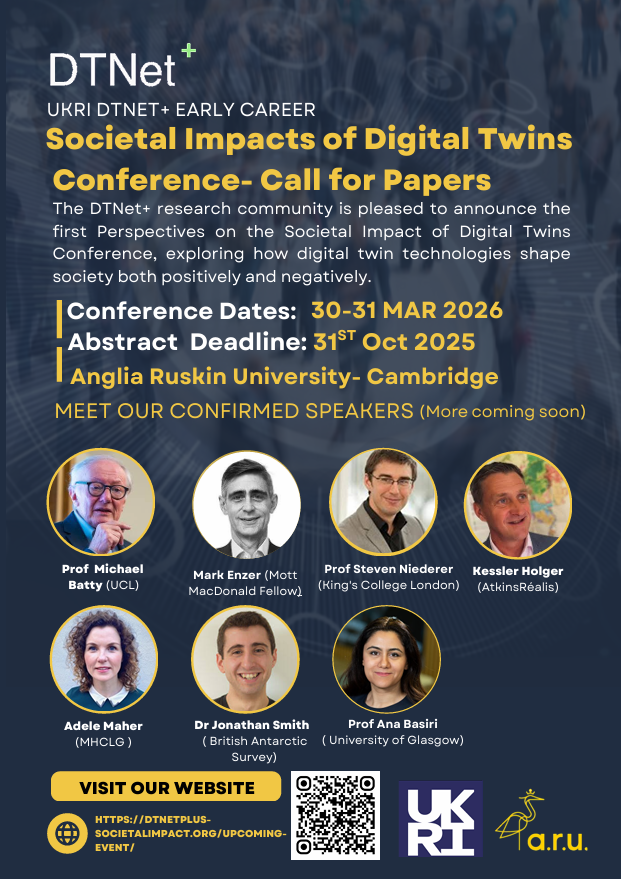The DTNet+ research community is pleased to announce the first Perspectives on the Societal Impact of Digital Twins Conference. The conference will be held at Anglia Ruskin University, Cambridge, UK. It aims to explore how digital twin technologies shape society both positively and negatively. This interdisciplinary event will bring together researchers, industry professionals, and public sector attendees to discuss how we can amplify the benefits of digital twins while recognising and mitigating potential harms.
- Abstract submission deadline: 16 November 2025
- Notification of accepted abstracts: 20 December 2025
- Conference: 29-31 March 2026 at Anglia Ruskin University (Cambridge, UK)
In addition to keynote talks from invited senior academics and industry leaders, the conference will feature themed sessions of short talks, poster presentations, and the possibility of workshops or training sessions. We welcome submissions on all topics related to the societal impacts of digital twins, including but not limited to:
- Cybersecurity, data governance, and privacy
- Healthcare and medical technologies
- Sustainability and environmental applications
- Urban planning, infrastructure, and transport
- Cultural heritage and the arts
- Education and digital learning environments
- Ethics, equity, and responsible innovation
In this edition, financial support for travel and accommodation is available to Early Career Researchers (PhD students, Postdocs, Lecturers, and Senior Lecturers or equivalent as assistant and associate professors) who have their papers accepted.
Full details, please visit the conference website: https://dtnetplus-societalimpact.org/upcoming-event/
Abstracts for posters and talks must not exceed 1000 words. Successful submissions will be selected to present at the 2026 Perspectives on the Societal Impact of Digital Twins. Furthermore, successful applicants will be considered for an invitation to submit to a special issue journal.
In this edition, financial support for travel and accommodation is available to Early Career Researchers (PhD students, Postdocs, Lecturers, and Senior Lecturers or equivalent as assistant and associate professors) who have their papers accepted.
